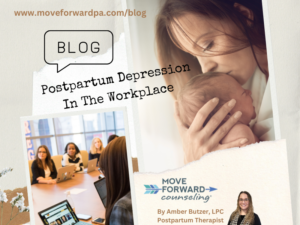Online therapy has taken off the past couple of years, since the start of the Covid-19 pandemic. It has created a whole new world of counseling and therapy, increasing accessibility for those who may have felt they didn’t have the means to attend therapy in person.
It has numerous benefits from being able to do it from anywhere with a viable internet connection, cutting down on travel time, increasing safety and comfort, and more. It has created another means for people to improve their mental health and participate in some much-needed self-care. But, how do you know if online therapy is right for you?

Use of Technology
To meet online with a therapist some simple technology use is required. You will have to log in to a secure, HIPPA-compliant meeting space, sometimes this does require a quick download on your part. The technology is simple and user-friendly but you have to be willing to try it out. Counseling sessions cannot be done over Facetime or Skype because they aren’t guaranteed to be as private and secure.
If you struggle with technology, you are not alone, you can always call the counseling office, ask the help of a friend or family member, or stop by your local library for help downloading or navigating the online platform.
Reliable Internet Service
Online therapy cannot happen without the internet. And, no one likes a conversation that frequently cuts out or loses connection. Before you make an online therapy appointment make sure you have access to reliable internet service. If you don’t have it at your home or office, you can always ask your local library if there is a private room you can use for an hour or use a phone from the comfort of your parked car.
Private, Safe Space
Before an online therapy session, you will need to determine a private, safe space to have your session. It is important that wherever you choose be as free of distractions as possible. That means minimizing the number of interruptions by children, pets, coworkers, or roommates. You will want to make sure you are in a space where others aren’t going to be overhearing your conversation so that you feel as comfortable as possible to share whatever is on your mind.
Clients often use a bedroom in their home, an office space, a parked vehicle, or even a walk-in closet or nook (as long as the internet works in the space). It is also important to consider visual distractions. Are you going to be able to focus on the session if you have visual distractions all around? Only you know you. You will need to determine that for yourself.
Willingness to Share
To know if online therapy is right for you, you need to assess your willingness to share. Do you think you will be receptive and comfortable in your own space speaking to a therapist? Or do you think you will be more willing and receptive to comments in an in-person office setting?
As long as you are willing to do the work—share and receive suggestions—and to take the first steps towards beginning therapy then you are on the right track to getting the help you need. You can always try online therapy and if it doesn’t work for you determine other viable options.

The important thing is for you to receive the mental health care you need and deserve. We can all use someone to talk to who is judgment-free and not part of our inner circle. Therapy can give you that, plus the tools you can use to heal and get through challenging times in the future. Online therapy is just another tool to help you get proper, healthy mental health care.
Ready to begin counseling in Pennsylvania?
At Move Forward, our professionally-trained and licensed counselors have openings. Just call our office at 717-462-7003×1 and speak to our administrative assistant to get started. You can get the tailored help you need right now. We are here.




























